{Another deep post, be warned...! This year is bringing a lot of deep thinking, must be those regular quiet times, haha!}
There are a couple of blogger friends that inspire me. I long to meet them in real life one day. Nicole is one such person. I have raved about her before and I love her dearly.
Her post on racism brought back so many memories for me. And I want to remind myself of what went before, in my childhood in South Africa. If I can remember, I won't forget what it looked like.
So bear with me, please. I think I need to reminise. And one day teach Rupi and Blossom through this blog about how searingly ugly racism is.
I grew up under the shadow of oppression. But not oppression of me, with my pale skin. The oppression of those who were the land's first people. The majority of the people. People with a mocha skin.

Although I was not oppressed and had "white rights" I was part of a second class of white people. I am English speaking and part of a culture that originates from England. English speaking people originated from Germany, Greece, Portugal (among others) and were all classed as "English speaking". Afrikaans people were the ruling class and had better access to education funding etc. Their schools and universities were world class. And somehow the English speaking community could never get it together enough to vote out the Afrikaans ruling class. The Afrikaans rulung class protected each other and their culture and so remained in power.
I first had an awareness that apartheid was wrong towards the end of Primary school. Before then, apartheid was just life. It was how things were done. I never went to school with anyone who wasn't white and never had any friends who didn't have a white skin. There was no way to come into contact with anyone who wasn't white except as part of a servant class. As I grew some people managed to bridge the gap between white and black. Mainly through the church. Actually the English speaking churches, in particular, the Anglican church. One such man was Bishop Desmond Tutu.

I remember Bishop Desmond Tutu coming to talk to our youthgroup. Although he was a bishop in the Anglican church he was seen as a rebel and anti-establishment. I am ashamed to say that much of what he said was dismissed and rejected by those in our church. I remember the adults talking about him in a derogatory way. This was my world. Closed and fearful.
Apartheid left it's mark in a horrifying way. The difference in lifestyle between black and white was appalling. White people had cars and houses and enough food and clothing. Black people did not. Education for black children was so bad that some of my generation burned their schools. Fine, said the government, you have no schools instead. So there is a whole generation of people my age who cannot read, write or add.
Government ministers and their friends took masses of land away from tribes. And in a couple of instances, relocated entire villages as they were in "the way". Relocated them to places without infrastructure, on the backs of trucks. No water, roads or food. Children died and people starved.
I could go on and on but if you would like to read about it there are so many books out there on what happened.
To say I carried a sense of shame over the colour of my skin would be an understatement. At times I loathed how pale I was. When I arrived in New Zealand I started to deal with my feelings as the distance gave God the chance to clear my thinking. I was not responsible but as a white person I carried part of the blame. I was too young to do anything to challenge the government, yes, but I benefited from what happened.
I asked God to forgive me and the people who carried the colour of my skin. He did and set me free from the shame I had. I still carry a hatred of oppression based on the colour of skin though. It's true that all people have oppressed, even here in the South Pacific. For example Tongans oppressed Samoans and enslaved them. The scars of that can still be seen. But white people seem to have done an awful lot of oppressing. Not so cool, people!

It's good to remember. I had a good childhood, cosy and safe. But a huge amount of people my age, did not. And I cannot forget that.
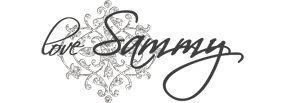
The books I have read and found really informative are:
Written during apartheid:
Cry, The Beloved Country by Alan Paton
In No Uncertain Terms by Helen Suzman
Written about/ during the first democratic elections
A Witness for ever by Michael Cassidy
From Tragedy to Triumph by Frank Retief
Written post apartheid
Die, The Beloved Country by Jim Peron
Reconciliation through Truth by Kadar Asmal
Total Onslaught by De Wet Potgieter
Written about the ANC/ Nelson Mandela:
Long Walk to Freedom by Nelson Mandela
Thabo Mbeki and the Battle for the Soul of the ANC byWilliam Mervin Gumede




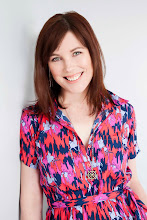


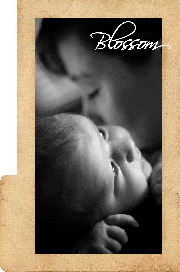



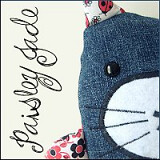


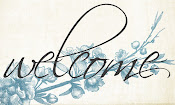






















7 comments:
Wow - loved this Sammy. I wept while in Israel, feeling the shame of what most of the world did to the jewish people, and also what the 'Church' put them through. So good to work through these feelings and start on the process of reconciliation.
Sammy,
I share your feelings. The older I grow and realize more, what was done here in our country to Native Americans.. I feel so bad that it was my ancestors who took their land and killed their people. Not to mention the slavery that existed here, and the years of oppression and prejudice toward African Americans which was beyond wrong. It is such a horrible thing.
Hi :o) I came across your blog a little while ago and it has become a must-read. You write such amazing, thought provoking posts.
I was just thinking about this topic the other day as I was looking out the window with my baby girl, we were watching lots of different types of birds coming and going from our bird feeder. We have so many different varieties here and they all happily get along... I wondered if they notice that they look different from each other, but if they do, it doesn't matter to them. They all just get along, peacefully eating together and sharing their food. It made me so sad that human beings, throughout time, have struggled to behave in such a way that comes so naturally to the rest of God's creation.
I can't imagine what it was like growing up in that environment but you have given an amazing insight. I was lucky enough to spend a couple of weeks in South Africa about 9 years ago and it was a real eye opener.
Cry the Beloved Country is my favourite book EVER..have you read it? It shows so well the impact that all the oppression had on the black people. The loss of pride, the feeling that they would never be anything but criminals and deadbeats because that was how they were always treated. But there is a degree of hope in the story too.
Thanks for provoking me to scratch past the surface too...something we all need to do..
Hi Meghan
I have read it and loved it although it was very hard (emotionally) to read it too.
I have included a list of other great books on South Africa xx
hi sammy, this is such an eye opening post. it made me realize that racism and oppression really hurt both the offender and the victim, and those scars run deep for everyone, crossing generations, ever hiding but always eating away at the heart.
there is healing from that, but the kind of healing that only God can work.
thanks for sharing
Great post. Have you heard of Dick Scott's 'Ask that Mountain'? It's about the passive resistance at Parihaka, Taranaki.
Post a Comment